Biography
Petruccioli was born in Terni, Umbria, but lived at Foligno until 1958, when he moved to Rome where he studied philosophy but without graduating. In 1959 he entered the Italian Communist Party and, in 1962, he became a member of the Italian Communist Youth Federation. Petruccioli was the latter's national secretary from 1966 to 1969. In that year, he became regional secretary for the PCI in Abruzzo, and was a member of the city council of Pescara, in the same region, in 1970. In 1971 he moved to Milan.
A journalist by profession, he was appointed co-director of the PCI's official newspaper, L'Unità , in 1975, becoming its director in 1981–1982. In 1976–1980 Petruccioli was also member of the Milanese La Scala theater's directing council. In 1983 Petruccioli was elected to the Italian Chamber of Deputies for the PCI, and, after being re-elected in 1987, he entered the PCI's national secretariat.
Petruccioli was elected again to the Italian parliament in 1992, this time for the PCI's successor, the Democratic Party of the Left (PDS). In 1994 he was elected for the same party, this time to the Italian Senate, where he stayed until 1996. [1] In 2005 he became president of Italian state-owned television, RAI. He ended his mandate in 2009, after refusing a resignation request in 2007.
Petruccioli in 2001 published his memories, entitled Rendi conto, dealing with the first ten years of the PDS and its followers, the Democrats of the Left (DS).

The Italian Communist Party was a communist and democratic socialist political party in Italy. It was founded in Livorno as the Communist Party of Italy on 21 January 1921, when it seceded from the Italian Socialist Party (PSI), under the leadership of Amadeo Bordiga, Antonio Gramsci, and Nicola Bombacci. Outlawed during the Italian fascist regime, the party continued to operate underground and played a major role in the Italian resistance movement. The party's peaceful and national road to socialism, or the Italian road to socialism, the realisation of the communist project through democracy, repudiating the use of violence and applying the Constitution of Italy in all its parts, a strategy inaugurated under Palmiro Togliatti but that some date back to Gramsci, would become the leitmotif of the party's history.

The Democrats of the Left was a social-democratic political party in Italy. Positioned on the centre-left, the DS, successor of the Democratic Party of the Left (PDS) and the Italian Communist Party, was formed in 1998 upon the merger of the PDS with several minor parties. A member of The Olive Tree coalition, the DS was successively led by Massimo D'Alema, Walter Veltroni, and Piero Fassino, and merged with Democracy is Freedom – The Daisy and a number of minor centre-left parties to form the Democratic Party in October 2007.
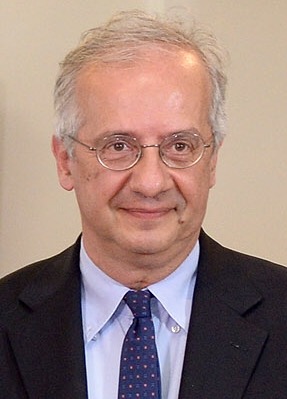
Walter Veltroni is an Italian writer, film director, journalist, and politician. He served as the first leader of the Democratic Party within the Italian centre-left opposition until his resignation on 17 February 2009. He also served as mayor of Rome from June 2001 to February 2008.

Fausto Bertinotti is an Italian politician who led the Communist Refoundation Party from 1994 to 2006. On 29 April 2006, after the centre-left coalition's victory in the Italian general election, he was elected President of the Chamber of Deputies, a position he held until 2008.
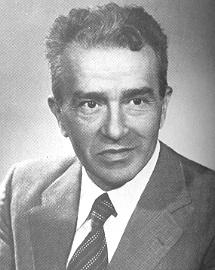
Pietro Ingrao was an Italian politician and journalist who participated in the Italian resistance movement. For many years, he was a senior figure in the Italian Communist Party (PCI).
Armando Cossutta was an Italian communist politician. After World War II, Cossutta became one of the leading members of the Italian Communist Party (PCI), representing the most pro-Soviet Union tendency; his belief in that country as the leading Communist state led him to criticize Enrico Berlinguer. Later in life, although he did not regret the choice he made, Cossutta considered that he was mistaken in opposing Berlinguer.

The Democratic Party of the Left was a democratic-socialist and social-democratic political party in Italy. Founded in February 1991 as the post-communist evolution of the Italian Communist Party, the party was the largest in the Alliance of Progressives and The Olive Tree coalitions. In February 1998, the party merged with minor parties to form Democrats of the Left. At its peak in 1991, the party had a membership of 989,708; by 1998, it was reduced to 613,412.

Gavino Angius is an Italian politician.

Antonio Giolitti was an Italian politician and cabinet member. He was the grandson of Giovanni Giolitti, the well-known liberal statesman of the pre-fascist period who served as Prime Minister of Italy five times.

The 1992 Italian general election was held on 5 and 6 April 1992. They were the first without the traditionally second most important political force in Italian politics, the Italian Communist Party (PCI), which had been disbanded in 1991. Most of its members split between the more democratic socialist-oriented Democratic Party of the Left (PDS), while a minority who did not want to renounce the communist tradition became the Communist Refoundation Party (PRC); between them, they gained around 4% less than what the already declining PCI had obtained in the 1987 Italian general election, despite PRC absorbing the disbanded Proletarian Democracy (DP).

Antonio Bassolino, Cavaliere di Gran Croce OMRI is an Italian politician. He was the president of Campania from 2000 to 2010 and the mayor of Naples from 1993 to 2000.

Gerardo Chiaromonte was an Italian communist politician, engineer, journalist, and writer.
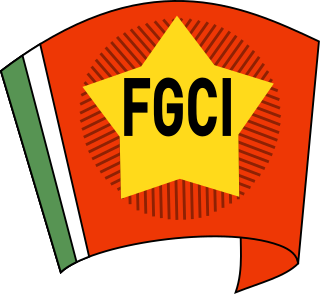
The Italian Communist Youth Federation was the youth wing of the Italian Communist Party, and the direct heir of the Federazione Giovanile Comunista d'Italia of the PCd'I.

Massimo D'Alema is an Italian politician and journalist who was the 53rd prime minister of Italy from 1998 to 2000. He was Deputy Prime Minister of Italy and Italian Minister of Foreign Affairs from 2006 to 2008. D'Alema also served for a time as national secretary of the Democratic Party of the Left (PDS). Earlier in his career, D'Alema was a member of the Italian Communist Party (PCI) and was the first former Communist party member to become prime minister of a NATO country and the only former PCI prime minister of Italy. Due to his first name and for his dominant position in the left-wing coalitions during the Second Republic, he is referred to as Leader Maximo. He is also the author of several books.

Carlo Donat-Cattin was an Italian politician and trade unionist. A member of Christian Democracy, he was several times minister of the Italian Republic. He was leader of the internal left current of the DC Forza Nuove.
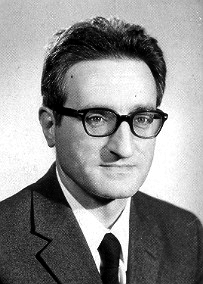
Aldo Tortorella is an Italian journalist, former politician and partisan. He was a historical member of the Italian Communist Party.

The Communist Refoundation Party is a communist political party in Italy that emerged from a split of the Italian Communist Party (PCI) in 1991. The party's secretary is Maurizio Acerbo, who replaced Paolo Ferrero in 2017. Armando Cossutta was the party's founder, while Fausto Bertinotti its longest-serving leader (1994–2008). The latter transformed the PRC from a traditional communist party into a collection of radical social movements.
Walter Piludu was an Italian politician for the Italian Communist Party (PCI).

Emanuele Macaluso was an Italian trade unionist, politician, and journalist.
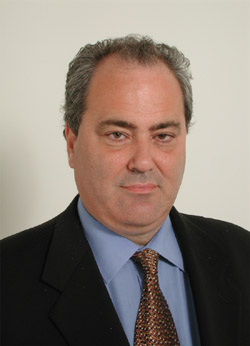
Goffredo Bettini is an Italian politician. He is a founding member of the Democratic Party (PD). As mentor and closest advisor of PD's former secretary Nicola Zingaretti, Bettini is considered one of the most influential and powerful politician within the party.


















